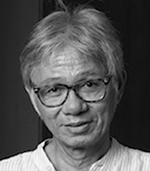

Thanks to technology, the evil that men do no longer has to live after them; it can now be erased or doctored digitally to look good.
Ferdinand Marcos is a singular case in point. President for 20 years, the last 14 as a martial-law dictator, he was given a hero’s burial despite all the atrocities of his regime. Thus was laid the centerpiece of a campaign to propagate a fake legacy.
Marcos’ heirs had lost little time in mounting a political comeback. A mere 5 years after massive street protests had driven him and his family to exile, in 1986, his widow, Imelda, was back with her orphans, leaving him behind, in Hawaii, dead but unburied.
Only too accustomed to her staged heroics, the democratic government that had succeeded the Marcos dictatorship did not even try to bar or arrest her. Supposedly, she had returned to face her family’s accusers; actually, she was regrouping for a presidential run the following year. She would finish fifth among 7 candidates, but Ferdinand Jr would win a seat in Congress for the family’s home district in the northern province of Ilocos Norte.
At the time, the internet had just dawned in these parts, and the Marcoses promptly seized upon that undiscriminating information storehouse and began dumping falsehoods portraying their patriarch as the greatest President the Philippines ever had and promoting, with fake credentials, his principal dynastic heirs, son Ferdinand Jr and daughter Imee. Of course, they did not neglect any of the old-time media that could be bought or fooled.
The strategy has paid off quickly and richly. The Marcoses have regained power and continues to expand it. As for the law against self-perpetuation in office, they get around it as do all other political dynasties – by rotating elective positions among themselves. The vote in the last midterms, in May, allowed Imee to replace Ferdinand Jr in the Senate, a son to take over from her as governor of Ilocos Norte, and a nephew to preside as mayor of its capital city, Laoag. Meanwhile, Imelda, 90 now, has passed her seat in Congress to a grandnephew.
Ferdinand Jr himself almost won as vice president in the national elections of 2016. Losing to a dark horse and by the slimmest of margins, he still insists he was cheated in the face of contrary proof established in a recount of votes from places where he alleged cheating occurred.
The Marcoses has had advantages other than those presented by technology, to be sure. Well-established in the politics of patronage, raising it in fact to new levels during their turn at power, they have called upon old cronies and followers, and yet made new ones. But no investment is proving more profitable than the “substantial” contribution Duterte has himself acknowledged receiving from the Marcoses for his presidential campaign.
Theirs is a foreordained partnership: Duterte professes to have always idolized Ferdinand Sr and now wishes Ferdinand Jr were his own successor.
In the larger unholy alliance under which their partnership is subsumed, the Marcoses are lumped with former president and plunder convict Joseph Estrada and his successor and pardoner, Gloria Arroyo. It is an alliance distinguished by a notoriety that goes unchecked by Congress and the courts. Since Duterte’s accession, those two co-equal branches with the presidency have ceased to be the proper counterweights to it.
Even in the largely abominable annals of Congress, nothing can be found that remotely compares with the eager and wholesale turncoatism for a president: Duterte has commanded a consistent 90-plus percent majority in the Lower House and an only slightly lower one in the Senate.
As for the Supreme Court, its leanings are betrayed by its rulings in cases where Duterte has a stake. It allowed Arroyo, a plunder detainee herself, to walk free and subsequently ordered the case against her dropped. The leniency was extended to other Duterte allies in the same boat. Imelda, for one, has not spent one moment in jail despite a conviction for graft.
If all this patent collusion has failed to provoke popular indignation, again, that can be ascribed to a triumph of fakery by technology. True, plain ignorance (from poor education) and a popular predisposition (a pathology developed, if you will, from a sick culture) are also a factor, but they precisely make for a suitable market of deceivable customers.
Preceded by a reputation for death-squad executions during his two decades as mayor of Davao City, presidential candidate Duterte himself had a history that needed revising. And he did it not exactly by giving his character some benign retouching, but by inventing a crisis that called for it – drugs. Thus, he was elected as the one-trick pony the nation needed – only to prove himself not even slightly worthy of the trick on which he sold himself.
Indeed, his incompetence cuts across the board. But he has troll forces deployed across all the digital platforms spreading fake news and bashing and threatening critics to ensure that the evil that the man does does not live after him. – Rappler.com